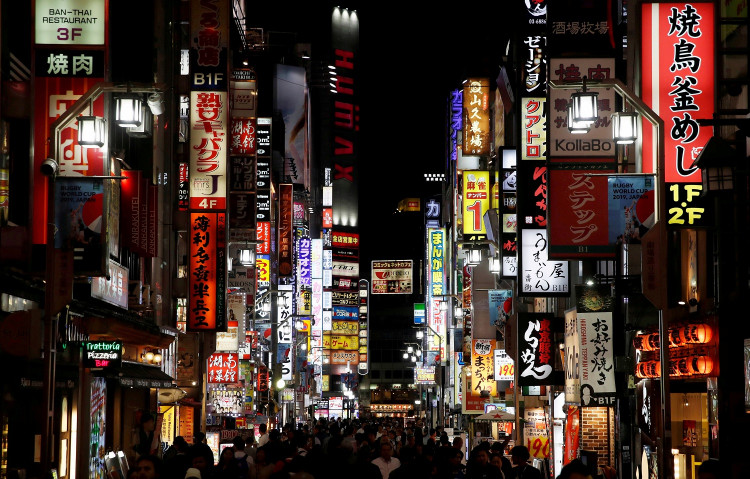Japan's economy shrank at an annualized rate of 3.9% in the first quarter compared with a preliminary 5.1% contraction and a market consensus of a 4.8% fall, according to data from the Cabinet Office Tuesday.
This followed an 11.7% growth in the fourth quarter. Private consumption, which accounts for more than half of Japan's gross domestic product, fell 5.8% - the first drop in three quarters - after a 9% growth in the December quarter, the office figures said. "Also, government spending decreased 4.5% following a 7.3% advance. Meantime, business spending shrank 4.6% after an 18.3% jump in the December quarter," it said.
"When you see the outlook for the economy, it's not all bad," said economist Yoshiki Shinke at Dai-Ichi Life Research Institute. "The pace of vaccination is picking up faster than expected and that's increasing a chance of robust rebound from the third quarter."
"The larger-than-expected upward revision to Japan's first quarter gross domestic product looks good on the outside but - based on the composition - is weak on the inside. One major factor behind the smaller contraction relative to the preliminary reading was an increase in private inventory. That could unwind in the second quarter - making a recession more likely," said Yuki Masujima, a Bloomberg economist.
Since the start of the year, Japan's recovery has been put on pause by on-again-off-again declarations of emergency to try to contain the COVID virus.
Prime Minister Yoshihide Suga's administration has walked a tightrope, using narrowly targeted restrictions on restaurants and bars to quell recent outbreaks, but letting most other businesses carry on as normal, The Japan Times reported Tuesday.
"May and June will likely be bad, but consumption probably won't be worsening greatly from the first quarter," said economist Takeshi Minami at Norinchukin Research Institute. "So I believe we'll be back in positive territory for the second quarter."
Meanwhile, average cash earnings rose by 1.6% year on year in April following an upwardly revised 0.6% rise in the previous month, the Ministry of Health, Labor and Welfare said Tuesday.
This was the second consecutive month of increase in wage growth and the steepest since November 2018.
"While the marked acceleration in wage growth in April was largely down to favorable base effects, we think wage growth will remain strong throughout this year as the labor market tightens and overtime hours recover further as vaccines allow the domestic economy to fully reopen," Capital Economics said.
"While consumption appears to have held up well in April, employment fell quite sharply as the fourth wave of coronavirus took hold. Despite total hours worked rising 1.8% month over month in April to the highest since the pandemic began...hours worked probably fell in May due to the states of emergency," it said.
"Meanwhile, overtime pay growth flipped from minus 5.0% on year to 6.4%. Most - but not all - of that was due to favorable base effects from the fall in overtime pay last April. That artificial boost will continue over the coming months and should be joined by more genuine strength in overtime pay later in the year as the economy reopens. Likewise, regular wage growth should remain strong - by Japanese standards - over the coming months as the vaccine-led recovery reduces slack in the labor market," Capital Economics Japan economist Tom Learmouth said.






